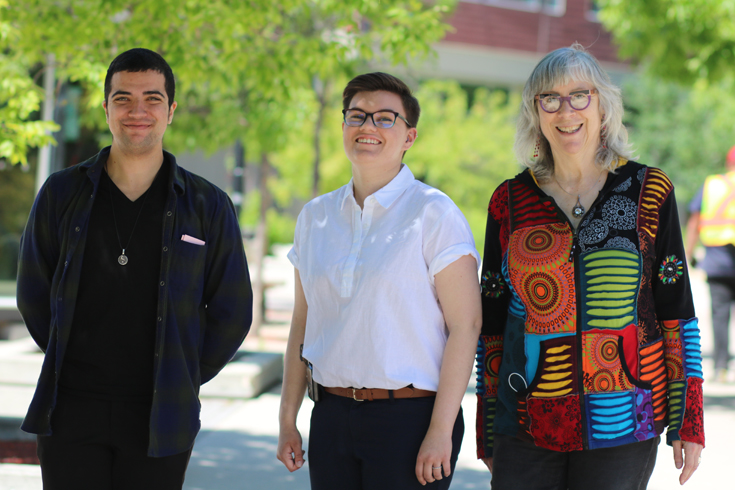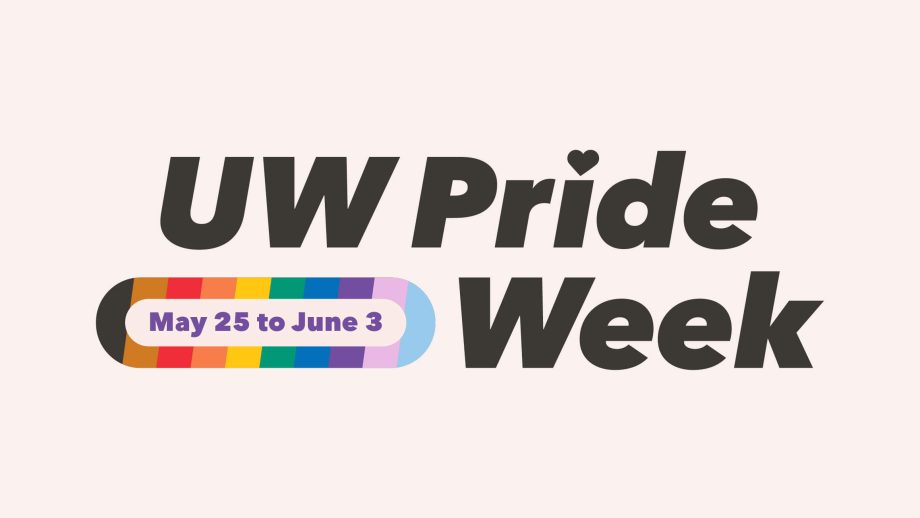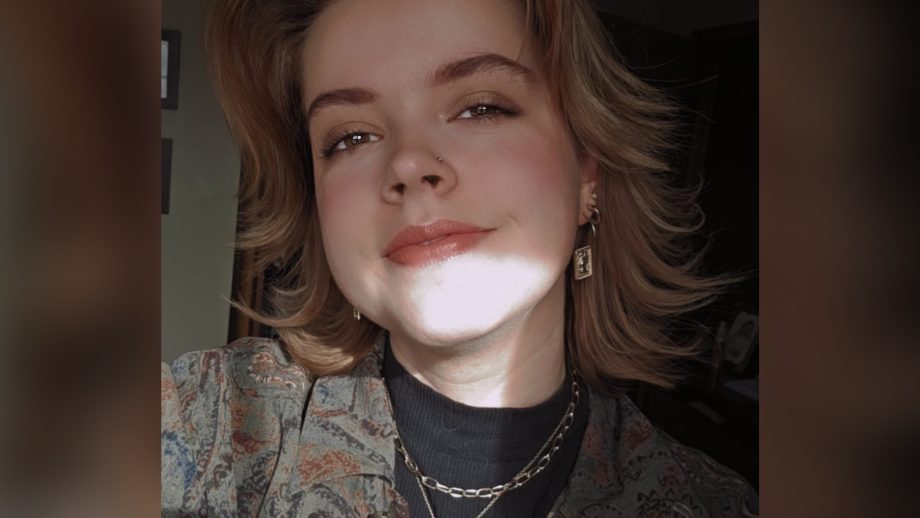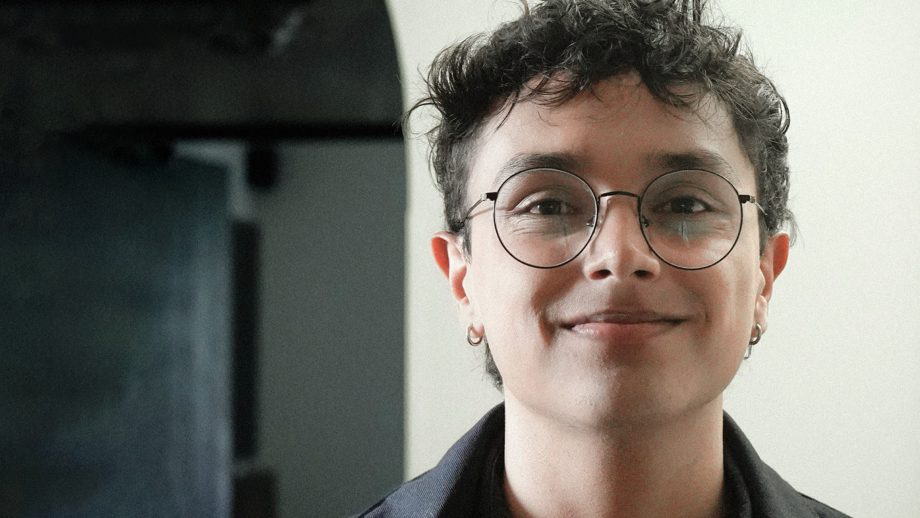When professor Dr. Pauline Greenhill, Women’s and Gender Studies, traveled to St. John’s, Newfoundland last month to attend The Folklore Studies Association of Canada 2019 conference, she brought three of her top students with her: Jennifer Hammond, Dianna Evangeline, and Maram Rocha.
It was validating to put so much energy into a project and see it take shape the way that it did.
Jennifer Hammond
Greenhill could not be prouder of the high level of research and poise demonstrated in their presentations.
“The students did a trial run at the annual Women’s and Gender Studies and Disability Studies Colloquium, and their hard work paid off, “ she said. “Jaws literally dropped when I told faculty colleagues from other universities that the students I brought were all undergraduates.”
Hammond presented results from her work study project examining a feminist/disability perspective on Disney’s The Little Mermaid films. It was her first time giving a paper at a conference, and the experience surpassed her expectations. She had been nervous about presenting and answering questions from scholars she respected, but when the moment came she felt comfortable.
“I felt really connected to my research material and was like, ‘Yes! This is why I do this’,” she said. “It was validating to put so much energy into a project and see it take shape the way that it did, and to feel re-energized by sharing this work with new people and, therefore, new perspectives.”
She is now working with Greenhill to prepare her paper for publication in a refereed journal. By sharing her research, Hammond hopes to encourage others to recognize imagination as a powerful tool for enacting social change.
Evangeline and Rocha presented papers they had written in WGS 4401 (The Uncanny, the Grotesque, and the Horror: Sex, Sexualities, and Gender in Fairy Tale Media), which they studied with Greenhill in the 2018 Fall Term.
Rocha’s paper, Queering the Opera Ghost: The Passing Transmasculine’s Mask, analyses the 2004 film version of The Phantom of the Opera from a queer and trans perspective.
“I am using scholarly sources, like Barbara Creed’s monstrous feminine, to provide a re-reading of the film, with the protagonist as a transmasculine person,” said Rocha. “I couldn’t have done it alone. Getting feedback and support from my peers made it that much more enjoyable.”
Evangeline’s presentation, Modern Mothers in The Haunting of Hill House, centred around the representation of mothers in the 2018 Netflix remake of Shirley Jackson’s 1959 novel.
“One of horror’s core characteristics is that of being on the leading edge of response to social change, telling stories that address the most current social values and fears,” she said. “This explains why there are remakes of horror classics and why they find a new audience with each remake in each generation.”
Greenhill says experiences like this are invaluable for students, showing them a crucial aspect of academic life; the communication of research results. She is thankful to UWinnipeg’s Research Office and the Institute for Women’s and Gender Studies for their direct financial support to the students to cover their travel.
“The opportunity to attend an international conference with a really multidisciplinary crowd of presenters is a great place to understand and critique what other disciplines and other faculty and students are doing,” she said. “It’s always great to see students’ topics develop from an idea to a finished, polished paper and how they apply the theories and analytical perspectives they’ve learned.”





